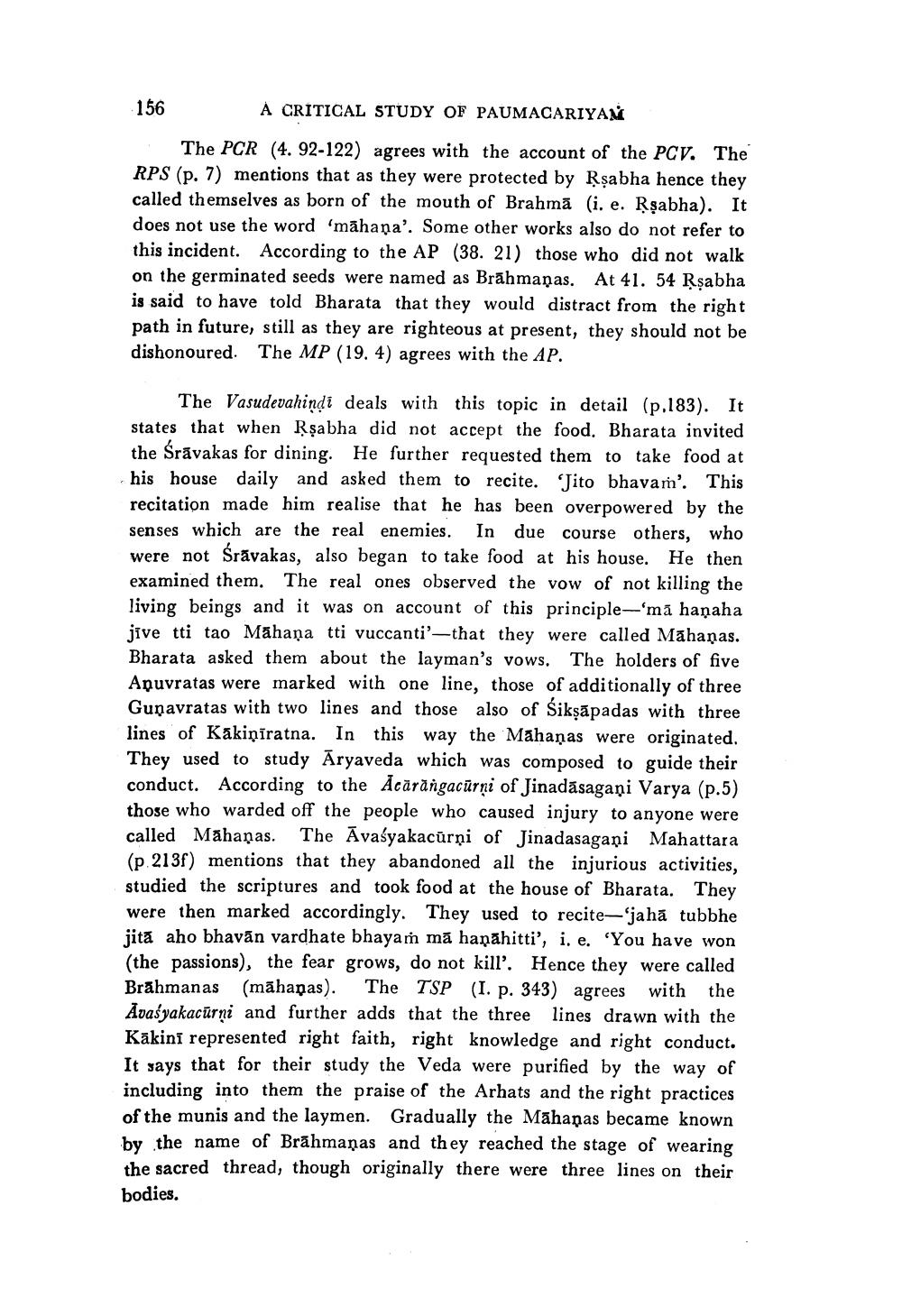________________
156
A CRITICAL STUDY OF PAUMACARIYAM
The PCR (4. 92-122) agrees with the account of the PCV. The RPS (p. 7) mentions that as they were protected by Rṣabha hence they called themselves as born of the mouth of Brahma (i. e. Rṣabha). It does not use the word 'mahana'. Some other works also do not refer to this incident. According to the AP (38. 21) those who did not walk on the germinated seeds were named as Brahmaņas. At 41. 54 Rṣabha is said to have told Bharata that they would distract from the right path in future, still as they are righteous at present, they should not be dishonoured. The MP (19. 4) agrees with the AP.
The Vasudevahindi deals with this topic in detail (p.183). It states that when Rṣabha did not accept the food. Bharata invited the Śravakas for dining. He further requested them to take food at his house daily and asked them to recite. 'Jito bhavam'. This recitation made him realise that he has been overpowered by the senses which are the real enemies. In due course others, who were not Śrāvakas, also began to take food at his house. He then examined them. The real ones observed the vow of not killing the living beings and it was on account of this principle-'mā haṇaha jive tti tao Mahaņa tti vuccanti'-that they were called Mahaņas. Bharata asked them about the layman's vows. The holders of five Apuvratas were marked with one line, those of additionally of three Gunavratas with two lines and those also of Sikṣāpadas with three lines of Kakiņīratna. In this way the Mahaņas were originated. They used to study Aryaveda which was composed to guide their conduct. According to the Acărăngacurni of Jinadasagaņi Varya (p.5) those who warded off the people who caused injury to anyone were called Mahaņas. The Avaśyakacurņi of Jinadasagani Mahattara (p. 213f) mentions that they abandoned all the injurious activities, studied the scriptures and took food at the house of Bharata. They were then marked accordingly. They used to recite-jaha tubbhe jita aho bhavan vardhate bhayaṁ ma haṇāhitti', i. e. 'You have won (the passions), the fear grows, do not kill'. Hence they were called Brahmanas (māhaņas). The TSP (I. p. 343) agrees with the Avasyakacurni and further adds that the three lines drawn with the Kākini represented right faith, right knowledge and right conduct. It says that for their study the Veda were purified by the way of including into them the praise of the Arhats and the right practices of the munis and the laymen. Gradually the Mahaņas became known by the name of Brahmanas and they reached the stage of wearing the sacred thread, though originally there were three lines on their bodies.




